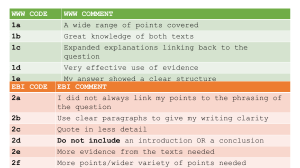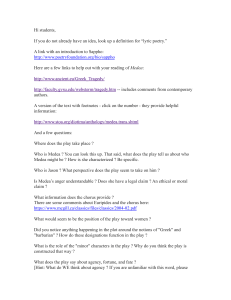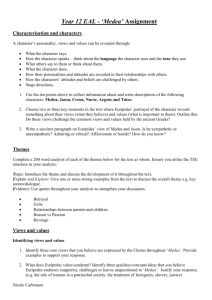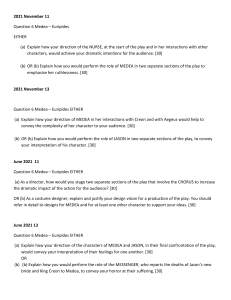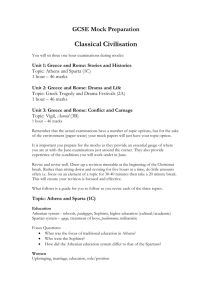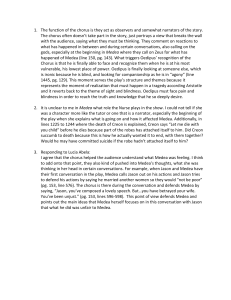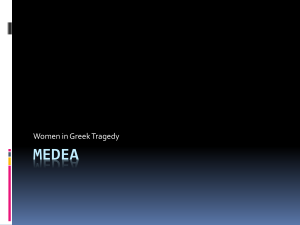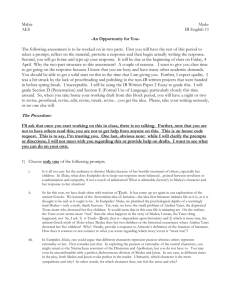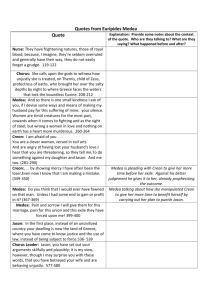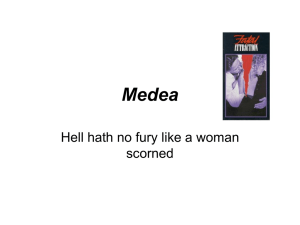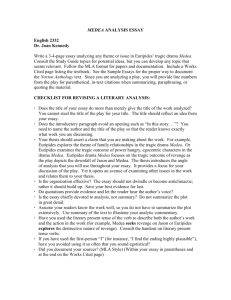Suggestions for your Research Paper: The first hurdle in this project
advertisement
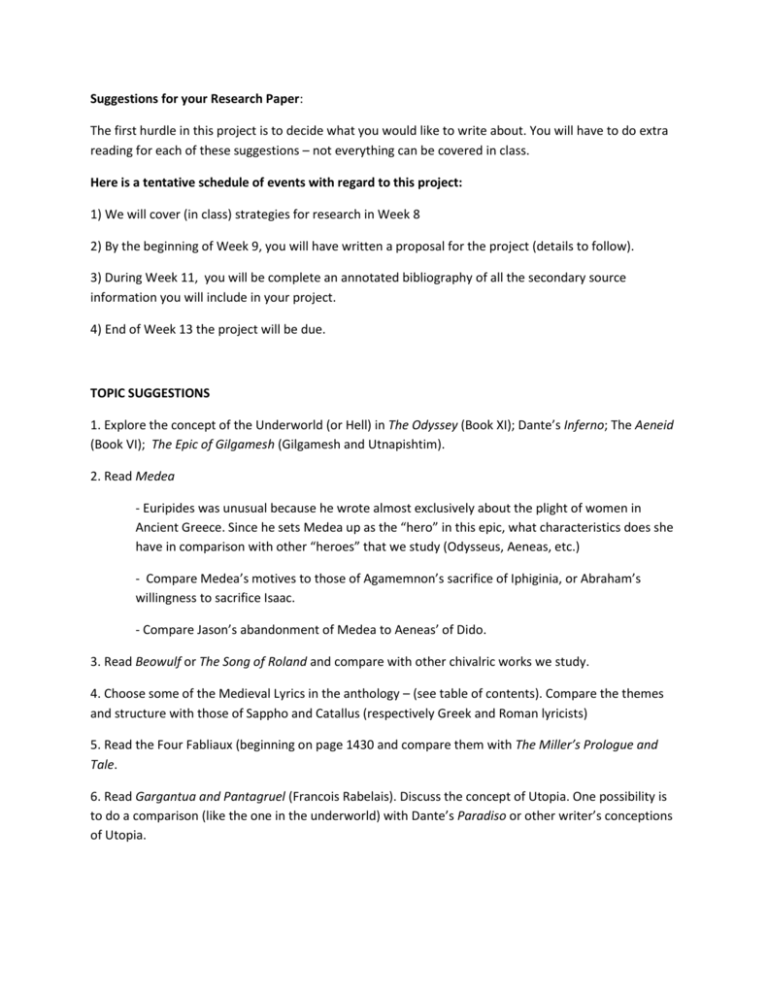
Suggestions for your Research Paper: The first hurdle in this project is to decide what you would like to write about. You will have to do extra reading for each of these suggestions – not everything can be covered in class. Here is a tentative schedule of events with regard to this project: 1) We will cover (in class) strategies for research in Week 8 2) By the beginning of Week 9, you will have written a proposal for the project (details to follow). 3) During Week 11, you will be complete an annotated bibliography of all the secondary source information you will include in your project. 4) End of Week 13 the project will be due. TOPIC SUGGESTIONS 1. Explore the concept of the Underworld (or Hell) in The Odyssey (Book XI); Dante’s Inferno; The Aeneid (Book VI); The Epic of Gilgamesh (Gilgamesh and Utnapishtim). 2. Read Medea - Euripides was unusual because he wrote almost exclusively about the plight of women in Ancient Greece. Since he sets Medea up as the “hero” in this epic, what characteristics does she have in comparison with other “heroes” that we study (Odysseus, Aeneas, etc.) - Compare Medea’s motives to those of Agamemnon’s sacrifice of Iphiginia, or Abraham’s willingness to sacrifice Isaac. - Compare Jason’s abandonment of Medea to Aeneas’ of Dido. 3. Read Beowulf or The Song of Roland and compare with other chivalric works we study. 4. Choose some of the Medieval Lyrics in the anthology – (see table of contents). Compare the themes and structure with those of Sappho and Catallus (respectively Greek and Roman lyricists) 5. Read the Four Fabliaux (beginning on page 1430 and compare them with The Miller’s Prologue and Tale. 6. Read Gargantua and Pantagruel (Francois Rabelais). Discuss the concept of Utopia. One possibility is to do a comparison (like the one in the underworld) with Dante’s Paradiso or other writer’s conceptions of Utopia. 7. Read Aeschylus’ Oresteia trilogy excerpts. You will see that most of the world’s great dramatic traditions have their roots in religious rituals, yet not all of the world’s great religions have nurtured drama. What role do the Greek gods play in the Oresteia? Compare the way God in the Old Testament of the Bible and Allah in the Koran interact with human beings and try to explain why neither Judaism nor Islam gave rise to classical theatre. 8. Read the selections of Plato in the book. - What elements of Socratic dialectic seem, on the one hand to reflect spoken discourse (think about how Socrates wrote nothing – and how we remember Homer. What qualities of abstract thought expressed in Plato show, on the other hand, a shift away from the representation of thought through action characteristic of Homeric composition? - Look at other philosophical texts of the ancient world (the Book of Job, the Sermon on the Mount, the Koran). Which seem primarily the record of oral discourse? How does the style of composition appear to affect the nature of the ideas being communicated? 9. Read Thorstein the Staff-Struck (we are not going to cover Viking lore in class). - write about the concept of “the reluctant avengers” - compare the story’s treatment of shifting attitudes about the need for vengeance to the treatment of the same theme in Oresteia. - compare and contrast the portrait of a marriage in this short narrative with that in The Tale of the Merchant and His Wife in The Thousand and One Nights. What view of women do these texts seem to share? 10. Read Machiavelli’s The Prince. -How would Machiavelli judge the actions of some of the rulers in other pieces we’ve studied over the semester? This is a short list. There are many readings that you have to choose from. Explore the table of contents and see what interests you. You can see some of the many possibilities – comparing texts or themes is always a good way to make sure you have enough to discuss. Review the different approaches to literature we discussed at the beginning of the semester. What approaches are you interested in? Psychological, historical, cultural? Choose a work that seems to fit one of those approaches. If you choose this option, you must read something NEW. You may make comparisons with other works we’ve studied – but make sure you use something uniquely YOURS.
